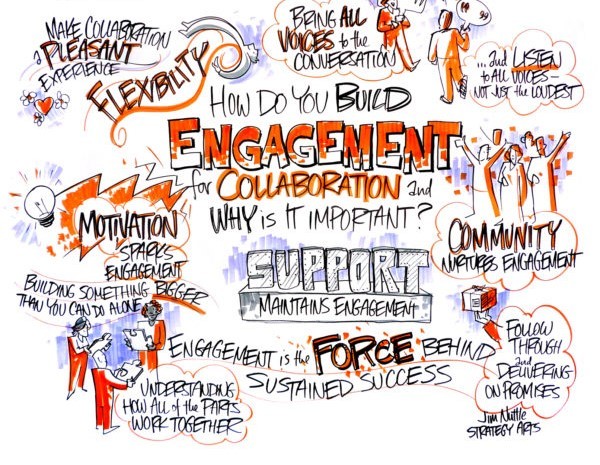3.2.1 Definitions
Course subject(s)
Module 3. How: Stakeholder engagement and gender dimension
Definitions
Stakeholder engagement is certainly a challenging process! Confusion over its terminology and concepts, sometimes adds to this challenge. Hence, it is useful to define several key concepts that we will use in this module:
- Stakeholders are those groups who affect and/or could be affected by an organisation’s activities, products or services and associated performance. This does not include all those who may have knowledge of or views about an organisation. An organisation has many stakeholders, each with distinct types and levels of involvement, and often with diverse and sometimes conflicting interests and concerns.
- Stakeholder engagement aims at establishing a platform where ideas and information from a variety of sources are shared and assimilated. In this process, mutual trust and respect can be built among different stakeholders through dialogue and social learning. Thus, stakeholder engagement has the potential to increase transparency, decision-making processes (as well as stakeholders’ active participation in decision-making process) and acceptance of credible and “neutral” results.
- Stakeholder dialogues is a “methodology for designing and implementing consultation and cooperation in a complex change process that requires different interest groups to be included and integrated” They are ‘guided conversations that ensure that people with different viewpoints and sometimes contradictory interests exchange (world) views’.
Importance of Stakeholder Engagement: RRI perspective
Below is a quote from from BSR (Business for Social Responsibility, see https://www.bsr.org/en/our-insights/report-view/stakeholder-engagement-five-step-approach-toolkit):
“Over the past 20 years, stakeholder engagement has come to be viewed as essential to fostering more responsible and sustainable business practices. In the 1990s, it emerged as a new method for understanding and addressing a broader set of social and environmental, as well as economic interests when planning and implementing corporate activities. Eventually, corporations developed tools and guidance to support them in designing systematic and effective engagement processes.”
The PRISMA-project included various stakeholder-dialogue meetings. All these events confirmed the importance of stakeholder engagement and co-creation for industry. Interacting with all key stakeholders, from the very early stages of the research and innovation (R&I) process, allows to understand and evaluate the possible impacts of the technological innovation on all the actors along the value chain. In summary:
- An early engagement with suppliers, users and end-users (professional users or consumers) helps anticipate positive and negative impacts, improve product design, and align the product development with users’ requirements and needs;
- The engagement with regulators, policy makers, local communities, investors and other actors along the value chain ensures a smoother dissemination of the strategy for deploying and marketing innovative products;
- The interaction with the different actors along the R&I value chain becomes crucial to define justified practices that cover the aspects of innovation that are not yet addressed by regulations;
- From a financial perspective, stakeholder dialogues can save money, as there will less likely be a need for costly changes in the technology after its introduction/implementation in society
An example of the latter is the development of autonomous vehicles which has emerged in one of the PRISMA pilots. Existing regulation does not allow for testing these systems in public places (for safety and security reasons). Interaction with authorities and local communities is essential to define a specific situation where these technologies could be developed, in line with the needs and rules of the community. A dialogue between stakeholders is essential to define trade-offs, in order to allow the development of new technologies in line with societal values and norms.
In the next section, we have a video that explain the importance of stakeholder engagement from different angles.


Responsible Innovation: Building Tomorrow’s Responsible Firms by TU Delft OpenCourseWare is licensed under a Creative Commons Attribution-NonCommercial-ShareAlike 4.0 International License.
Based on a work at https://online-learning.tudelft.nl/courses/responsible-innovation-building-tomorrows-responsible-firms/.



